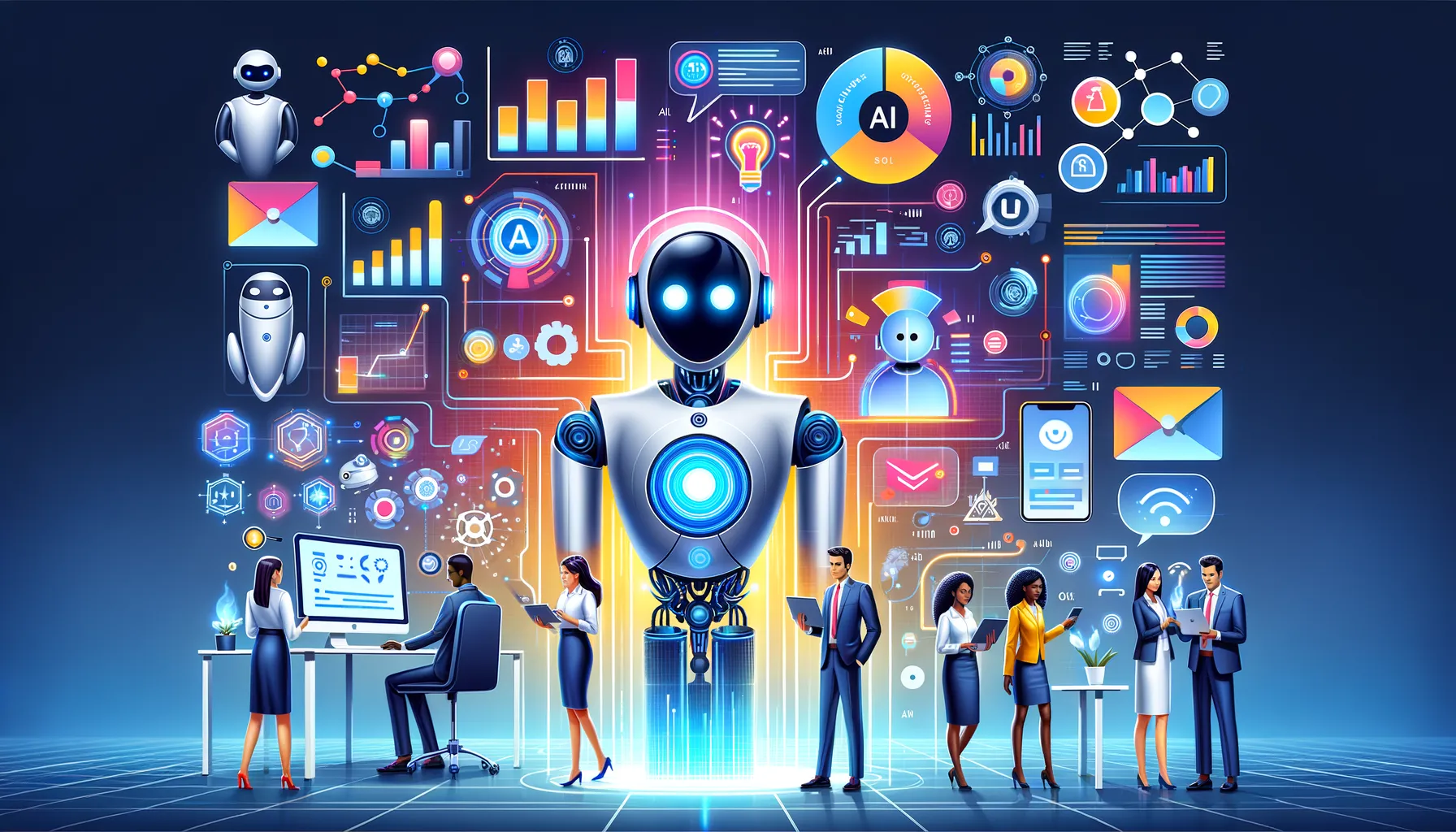
Unlocking Success: Real-World Applications of AI Tools in Digital Marketing
In today’s fast-paced digital landscape, businesses are constantly seeking ways to enhance their online presence and engage their audiences effectively. Enter AI tools, which are reshaping the digital marketing space by providing innovative solutions for content creation, customer engagement, and data analysis. This article will delve into the real-world applications of AI tools in digital marketing, showcasing case studies that illustrate their effectiveness. We will explore how these technologies can streamline processes, personalize experiences, and ultimately drive success in digital marketing strategies.
The Rise of AI Tools in Digital Marketing
Artificial intelligence is no longer just a buzzword; it has become a cornerstone of effective digital marketing strategies. According to a report by Gartner, 75% of marketers are increasing their investment in AI technologies. The ability to analyze large volumes of data quickly and derive actionable insights is a game changer for digital marketers. AI tools can automate mundane tasks, provide personalized recommendations, and improve customer service, making them invaluable assets.
Key Statistics and Benefits
- Efficiency: AI tools can automate repetitive tasks, freeing up time for marketers to focus on strategy and creativity. For example, chatbots can handle customer inquiries 24/7, improving response times and customer satisfaction.
- Personalization: AI can analyze user data to provide personalized content and recommendations. A study by McKinsey found that personalization can lead to a 10-30% increase in revenue.
- Data Analysis: AI excels at analyzing complex data sets, allowing marketers to gain insights into customer behavior and preferences. This data-driven approach enables businesses to make informed decisions.
Real-World Applications of AI Tools
1. Content Creation and Curation
AI tools are transforming content creation and curation. For instance, tools like Jasper leverage AI to assist marketers in generating high-quality content quickly. This tool can produce blog posts, social media content, and marketing copy that resonate with target audiences.
How It Works
- Input Keywords: Marketers input specific keywords related to their niche.
- AI Generation: The tool generates content based on the latest trends and data.
- Optimization: The generated content is optimized for SEO, ensuring it ranks well in search engines.
2. Enhancing Customer Engagement
AI-powered chatbots are revolutionizing customer engagement. Businesses like Sephora have implemented chatbots on their platforms to assist customers with product recommendations and inquiries. These chatbots learn from interactions, improving their responses over time.
Benefits of Chatbots
- 24/7 Availability: Customers can get assistance any time, enhancing their experience.
- Data Collection: Chatbots gather valuable data on customer preferences, which can be used to improve marketing strategies.
Case Studies of AI Success in Digital Marketing
1. Netflix: Personalization at Scale
Netflix utilizes AI algorithms to analyze viewing habits and recommend content tailored to individual preferences. This level of personalization has been a significant factor in their customer retention strategy. According to a study, 80% of the shows watched on Netflix are recommended by its algorithm.
2. Amazon: Predictive Analytics
Amazon employs predictive analytics to forecast customer purchasing behavior. By analyzing past purchases and browsing history, Amazon can suggest products, significantly increasing upsell opportunities. This strategy has contributed to their status as a leader in e-commerce.
Common Mistakes to Avoid When Implementing AI Tools
While AI tools offer numerous benefits, there are pitfalls to avoid:
- Neglecting Human Touch: Over-reliance on AI can alienate customers. It’s essential to balance automation with human interaction.
- Ignoring Data Privacy: Ensure compliance with data protection regulations like GDPR to build trust with customers.
- Underestimating Training Needs: Staff must be trained to effectively use AI tools, as improper use can lead to poor outcomes.
Future Trends in AI and Digital Marketing
As AI continues to evolve, several trends are emerging in digital marketing:
- Voice Search Optimization: With the rise of voice-activated devices, optimizing content for voice search will become critical.
- AI in Social Media Marketing: Tools that analyze social media trends and engagement metrics will become more prevalent, helping marketers fine-tune their strategies.
Implementation Strategies for Businesses
To successfully integrate AI tools into digital marketing strategies, consider the following:
- Start Small: Begin with one or two AI tools that address specific pain points in your marketing strategy.
- Monitor Performance: Regularly assess the performance of AI tools and adjust strategies as needed.
- Stay Informed: Keep up with the latest developments in AI technology to leverage new opportunities.
Resources for Further Learning
Conclusion
AI tools have the potential to revolutionize digital marketing, providing businesses with innovative ways to enhance customer engagement, streamline processes, and personalize experiences. As demonstrated through various case studies, the successful implementation of AI can lead to significant improvements in marketing strategies. By understanding the applications and best practices of AI tools, marketers can unlock new levels of success. Take action today by exploring AI tools that can elevate your digital marketing efforts and stay ahead in this competitive landscape.